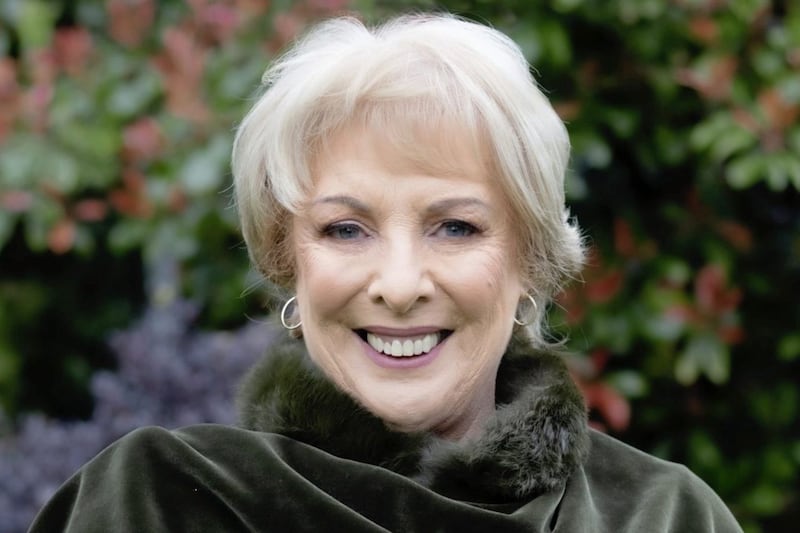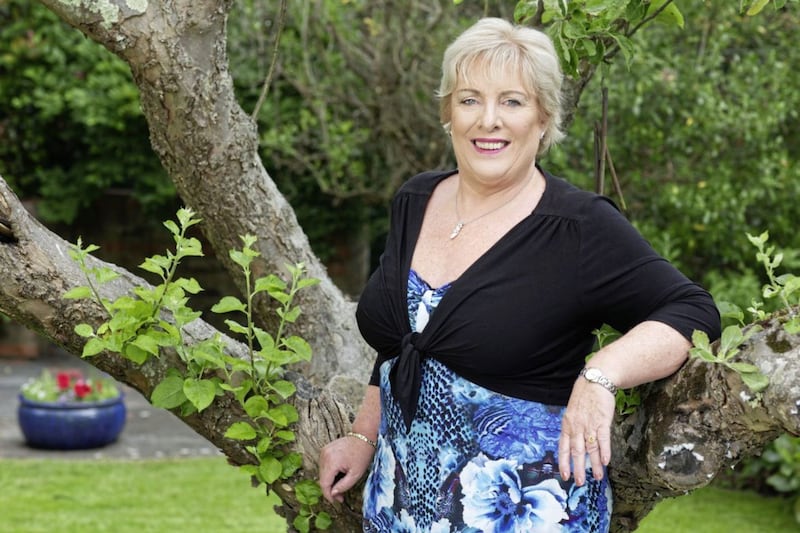SHE’S one of Ireland’s best loved authors, with her books having been translated into many languages, but Patricia Scanlan’s foray into the world of fiction actually started out as a means to pay the bills.
“I was still living with my parents and my car was falling to bits and I knew I needed to do something else to earn money,” says the Dubliner, who was working as a librarian at the time.
Due to the popularity of Mills & Boon romantic novels among library users, Scanlan decided to write her own.
“It was called Surgeon's Conquest and about me falling in love with dark, handsome surgeon," she tells me when we chat by phone. "But I couldn't stick to the rules, as I was writing it from his point of view as well. It was never published, but I enjoyed creating a world in which you could do what you like within it so much that it got me on the road to writing.”
Fast forward three decades and Scanlan is now celebrating the 30th anniversary of her first publication, City Girl.
“Shortly after my Mills & Boon attempt I saw an advertisement for a writing competition where you could win an electric word processor. Edna O'Brien had written Country Girls, so I decided to write about Irish city girls and that was the start of it,” recalls the 63-year-old.
“Maeve Binchy was the greatest female author we had. Her characters were based in the 50s and 60s and when I started in the late 80s there wasn't really anyone writing about contemporary Irish women.”
Set in Dublin in the late 1980s, City Girl follows the exploits of Devlin, Caroline and Maggie and their battles with changing times and turbulent love lives. Now, since the 30th anniversary edition republication, with its new contemporary cover, Scanlan has been inundated with requests from her fans on social media to write a follow-up book about what the three friends are doing in 2020.
“I’ve had such tremendous responses from people about what the characters and the story meant to them," she says. "So many people have asked me to write an up-to-date version of City Girl. The girls would be in their 50s now and already I think I have Devlin looking for her birth mother and Maggie being part of a blended family.”
City Girl’s themes of dreams, heartache and employment are still very relevant today. “There’s even a 'me too’ moment,” adds Scanlan, referring to the modern-day movement against sexual abuse and harassment.
She has wonderful memories of the first launch of City Girl, both at Dublin’s California Café in Talbot Street and in London’s Groucho Club during a very different era in publishing, when authors were often treated like celebrities.
“I had to stand on a chair in the Groucho Club to make my speech because there was such a crowd and they couldn’t see me at the back. It was like a dream. Who was that young woman in shoulder pads, who is hobbling around on crutches now?” laughs Scanlan, who is awaiting hip surgery this autumn.
“In those days a book launch was a big deal. I was on TV and radio doing interviews and I remember arriving in O’Connell street to cheers on the Easons bus, with my face adorning its side,” she laughs.
Scanlan acknowledges that the popularity of technology and ebooks has changed the world of publishing greatly.
“It was all about the book when I started. Now it is a commodity and you have to pay for your slot and position in a shop.”
With an Irish publishing advance of just 150 punts, Scanlan remained in her library job for a further three years, writing fiction by evening and having to use her annual leave to do her publicity. But a six-figure American publishing deal in 1991made her able to concentrate on writing full-time.
However, despite the success that City Girl and her subsequent novels have brought her, Scanlan is most proud of her work with The Open Door series, an adult literacy series of novellas, launched in the mid-1990s by Scanlan and Irish publisher New Island.
Having worked in Dublin Public Libraries, she was acutely aware of the literacy problems facing a large segment of the adult population and the dearth of appropriate reading material available to them.
“I often met users who embarrassingly couldn’t find books to suit them beyond the children’s section,” recalls Scanlan, who was asked by a literacy tutor to write something suitable for his group.
She took up the challenge and her 10,000-word novella Second Chance, published in 1994, was warmly received.
“In some ways I felt it was the most important book of my career,” says Scanlan proudly.
“It was challenging but also a wonderful privilege. I was mindful of keeping the sentences short and the language accessible, but most of all I wanted the reader to be engaged and eager to turn the page.”
In recent years, the immigrant community who are learning English have benefitted enormously from the books.
Despite being disappointed that plans to celebrate the 30th anniversary of City Girl “with a big hooley” were put on hold due to the pandemic, Scanlan was delighted to use the uncertain lockdown period to edit Voices: An Open Door Book of Stories.
The anthology features writing from 27 Irish authors including Rachael English, Martina Devlin, Carlo Gébler, Louise Kennedy, Sinéad Moriarty, Sheila O’Flanagan, Roddy Doyle and Donal Ryan.
Scanlan also contributed to Voices, with a short story close to her own heart, writing about a young woman who tried to take her own life "because no-one would listen to her about her pain".
"She was addicted to painkillers and ended up in a psychiatric hospital, but eventually she got a sympathetic ear and was able to get treated for endometriosis,” she says.
Like her character, Scanlan suffered many years with undiagnosed endometriosis.
“I spent almost 15 years trying to get diagnosed. I was told it was all in my head and that I had a low threshold of pain. I was even told to go and have a baby, and of course endometriosis is one of the main causes of infertility,” she recalls.
It’s been a busy year for Scanlan, who also published The Liberation of Brigid Dunne. The novel marks a departure from her more recent books in that it opens in modern Ireland but then moves back in time by 60 years.
The main character Brigid and her sister Imelda live in rural Ireland where, like most women, they are bound by the ties of church, state and the expectations of their own families. Throughout the novel we see the seismic changes that Ireland has experienced and how they have affected women.
“I wanted to write this story for younger women, including my own nieces, who take their privileges for granted, and have no idea what battles had to be fought for the sake of their freedom,” Scanlan says.
:: City Girl by Patricia Scanlan (30th anniversary edition) and The Liberation of Brigid Dunne are out now, published by Simon & Schuster.




